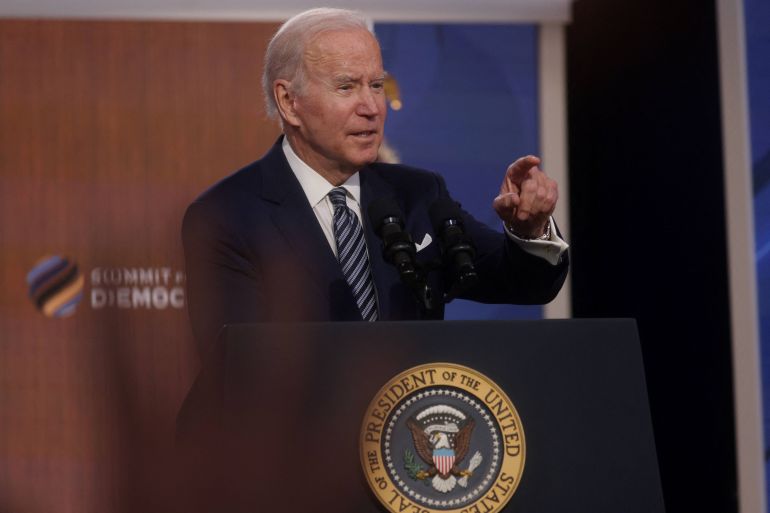Biden halts US funding for new fossil fuel projects overseas
The policy bans federal funding of overseas coal projects that do not capture or partially capture carbon emissions.

The administration of United States President Joe Biden has ordered US government agencies to immediately stop financing carbon-intensive fossil fuel projects overseas and prioritise international collaborations to deploy clean energy technology, according to US diplomatic cables seen by Reuters News Agency.
The cables, seen by Reuters, say US government engagements should reflect the goals set in an executive order issued at the start of the year aimed at ending US financial support of coal and carbon-intensive energy projects overseas.
Keep reading
list of 4 itemsWestern states ask Tunisia to return to ‘democratic institutions’
Oil drops for sixth straight week as Omicron jolts markets
OPEC+ sticks with current oil production plan, despite Omicron
“The goal of the policy described below is to ensure that the vast majority of US international energy engagements promote clean energy, advance innovative technologies, boost US cleantech competitiveness, and support net-zero transitions, except in rare cases where there are compelling national security, geostrategic, or development/energy access benefits and no viable lower carbon alternatives accomplish the same goals,” a cable said.
The announcement was first reported by Bloomberg News.
The policy defines “carbon-intensive” international energy engagements as projects whose greenhouse gas intensity is above a threshold lifecycle value of 250 grams of carbon dioxide per kilowatt hour and includes coal, oil or gas/petrol.
The policy bans any US government financing of overseas coal projects that do not capture or only partially capture carbon emissions, allowing federal agencies to engage in coal generation only if the project demonstrates full emissions capture or is part of an accelerated phase-out.
It exempts carbon-intensive projects for two reasons: they are deemed to be needed for national security or geostrategic reasons, or they are crucial to deliver energy access to vulnerable areas.
The policy formalises the goals set by the administration in earlier executive orders and policy guidances and reiterated in multilateral forums such as the Group of Seven meeting in France in August and the United Nations climate summit in Scotland in late October and early November.
Environmental groups said the policy, which they have long advocated for, is a step in the right direction but creates loopholes that could undermine its goals.
“This policy is full of exemptions and loopholes that lack clarity, and could render these restrictions on fossil fuel financing completely meaningless,” said Kate DeAngelis, a climate finance expert at Friends of the Earth.